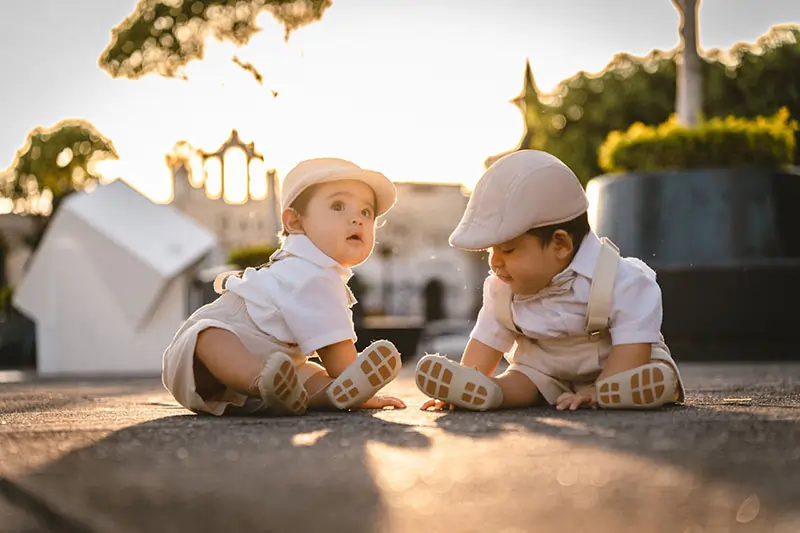Top 5 Baby Milestones Every Parent Should Monitor
Your baby’s first few months are filled with exciting and sometimes tear-jerking moments as they grow and develop. Your baby’s steps to development are also key indicators that you need to monitor closely to make sure they are on track and healthy overall.
Understanding your baby’s milestones can also help you identify potential issues early on, making sure that your little one gets the needed care and intervention should it become a necessity.
Baby Milestones You Need to Keep a Keen Eye on
1. Sitting Up
One of your baby’s first major milestones is learning to sit up without your support. This typically happens when your baby is between 4 to 7 months of age.
When this happens, it shows you that their neck and back muscles are developing strength and coordination. It’s best for you to encourage this activity by providing plenty of tummy time and supporting your tiny angel’s sitting practice.
Here are some signs you need to watch out for, however:
- Your baby struggles to hold their head up steadily
- Cannot sit up without your support at 8 months
In some developmental challenges, cerebral palsy may be the cause if your baby has difficulty sitting up or favoring one side of their body when they move.
According to research, about 10% of cerebral palsy cases are acquired, especially those who suffered birth injuries due to medical errors like improper use of medical instruments or delayed cesarean section at birth.
It may be best to consult a legal expert to help you understand the stages of cerebral palsy lawsuits. You need to seek compensation for lifelong care should this be the case for your precious one.
Babies with these challenges need support, especially thorough evaluations by pediatric specialists, tests, therapies, and other interventions, apart from their most needed extraordinary care.
2. Crawling
Your baby will typically begin to crawl and grapple between 6 to 10 months old. This is a significant milestone for your little one as it demonstrates their growing motor skills, muscle coordination, and development.
You may need to childproof your home at this time to avoid worries of your baby getting hurt, especially when they become quite engaged in hands-and-knee crawling, the bear crawl, and even bottom shuffling. Just be ready to keep sharp objects and corners padded, and catch them, to keep them out of harm’s way when they topple over.
However, you need to monitor your baby should you notice these signs:
- Not showing interest in moving or exploring when they’re already 12 months old
- Favoring one side of their body while crawling
Crawling not only strengthens your baby’s muscles but also promotes brain development through cross-lateral movements, which are essential for later skills like reading and writing. So, it may be a cause for alarm if you notice any unusual patterns or your baby’s lack of mobility, and this may be worth discussing with a pediatrician.
3. Standing and Walking
For many babies, standing with support typically occurs between 6 to 10 months, while they may be able to walk on their own when they’re about 9 to 15 months old. These milestones are quite exciting as they mark the beginning of your little one’s independence and explorations.
So, encourage your little kiddo to stand and walk on their own by providing a safe environment or home space free from obstacles and other baby-walking hazards. It’s also best to grab your angel with appropriate supportive footwear to protect their little feet.
You may need, however, to watch out for these signs:
- Not attempting to stand with support for 12 months and over
- Not walking independently by 18 months old
These signs of delayed walking can be due to various reasons like muscle tone issues or some neurological problems. As with other baby challenges, early detection and timely intervention like physical therapy can make a significant difference and improvement.
4. First Words
Hearing your baby speak their first words can be the most exciting and heartwarming milestone, especially when they start their “mama” or “dada.” This usually happens when they’re around 12 months of age, which includes uttering simple words that hold meaning in their daily baby activities.
Some signs to watch and worth noting are:
- Not babbling or using gestures at 12 months old
- Not uttering single-syllable words even if they’re already 16 months old
Some speech delays can be caused by hearing issues or other developmental disorders, so visiting your baby’s doctor or a speech pathologist may be best. It’s also helpful to engage your baby in regular conversations, reading to them and responding to their little attempts to communicate, as this encourages their language development.
5. Hand-Eye Coordination
Your baby’s hand-eye coordination is another memorable milestone, as this means fine motor skills development. This usually happens when your little kiddo is about 4 to 6 months old and begins to grasp objects.
Around 9 to 12 months old, they can typically use their thumb and forefinger to pick up small items using their “pincer grasp” skill.
You do need to watch out, however, because they tend to shove everything they grasp into their little mouths. You also need to observe if they have difficulty doing this when they’re already 6 months or older or unable to use the pincer grasp by 12 months.
Fine motor skill delays in your baby might indicate underlying neurological issues, especially if they’re quite significant. Although providing toys that encourage grasping and manipulation can help improve these skills, it’s still best to consult a healthcare professional for a more detailed evaluation and intervention measures.


